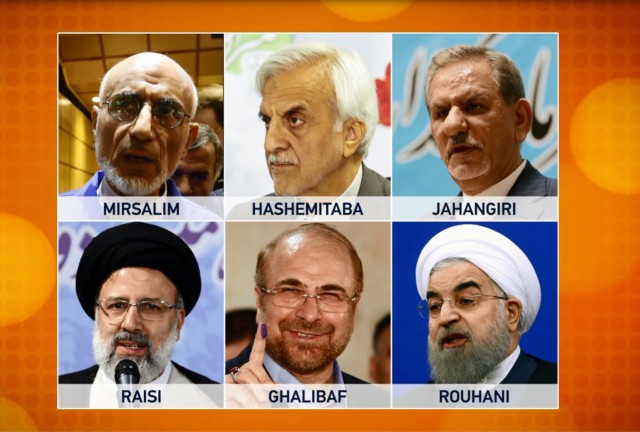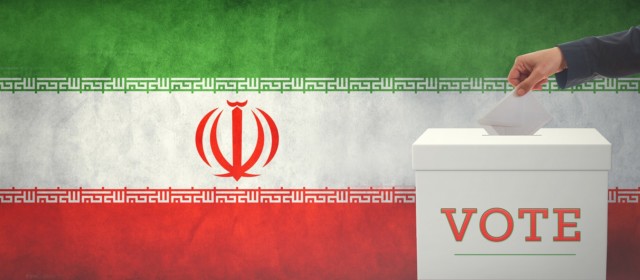On May 19, the citizens of Iran will head to the polls and cast a vote for their next President.
Elections come at a time of rising tension in Syria and the broader Middle East, and a new U.S. administration that’s been openly critical of not only the Iran nuclear deal, but Tehran’s behavior in the region and beyond. President Hassan is no heir apparent, and the path to victory will be riddled with complications and challenges. Rouhani’s alleged failure to keep his promises have created a rift among his base supporters, and create a pathway to victory for another candidate.
Rouhani ran on a platform of inclusion and hope. Four years later his only significant achievement is the nuclear deal, that may have generated enough value to Iranians to garner Rouhani the votes he needs for re-election. Six candidates won the approval of the country’s Guardian Council — a conservative watchdog group charged with vetting the candidates. The group includes, Tehran Mayor Mohammad Bagher Qalibaf and Ebrahim Raeisi, custodian of the Imam Reza shrine in Mashhad.
needs for re-election. Six candidates won the approval of the country’s Guardian Council — a conservative watchdog group charged with vetting the candidates. The group includes, Tehran Mayor Mohammad Bagher Qalibaf and Ebrahim Raeisi, custodian of the Imam Reza shrine in Mashhad.
To discuss the election and what’s at stake:
- Mohsen Milani, executive director of the Center for Strategic and Diplomatic Studies at the University of South Florida.
- Trita Parsi, founder and president of the National Iranian American Council. His latest book is entitled, “Losing an Enemy – Obama, Iran and the Triumph of Diplomacy”.
- Kaveh Afrasiabi, former adviser to Iran’s nuclear negotiating team — political scientist and author.


For more:
Iran’s Rouhani Deserves A Second Term – OpEd https://t.co/GdDGQmt9QN
— kaveh afrasiabi (@kavehafrasiabi) April 17, 2017
Excellent piece by @JBWolfsthal
Scuttle the Iran Nuke Deal? That Approach Didn’t Stop North Korea https://t.co/9ml0VgPJhJ via @defenseone
— Trita Parsi (@tparsi) April 27, 2017
Let's focus on our commonalities and turn differences into strengths through dialogue & cooperation. Our power resides within our bond. #ECO pic.twitter.com/iobLicYts8
— Hassan Rouhani (@HassanRouhani) March 1, 2017
 CGTN America
CGTN America

